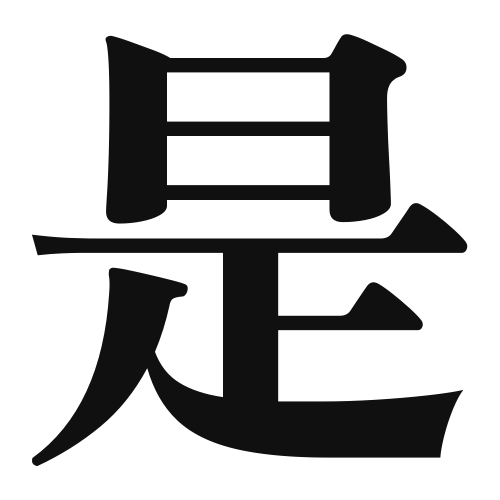1. Overview of Meaning
The kanji “是” (pronounced “ze” or “kore”) means “to be” or “is.” It is often used to affirm something or indicate agreement.
2. Formation and Radical
The kanji “是” is a compound character that combines elements to convey its meaning. It is classified as a phonetic-ideographic character, where the left part suggests the meaning and the right part indicates the pronunciation.
The radical of “是” is “正” (meaning “correct” or “right”), which contributes to its overall meaning of affirmation or correctness.
3. Examples of Usage
Common words and phrases that include “是” are:
- 是非 (zehi) – pros and cons
- 是認 (zenin) – acknowledgment
In everyday conversation, “是” can be used in sentences like:
- これは是ですか? (Kore wa ze desu ka?) – Is this correct?
- あなたの意見は是です。 (Anata no iken wa ze desu.) – Your opinion is valid.
4. Synonyms and Antonyms
Similar kanji with related meanings include:
- 正 (sei) – correct, right (focuses more on correctness)
- 合 (ai) – to fit, to match (emphasizes compatibility)
Antonyms include:
- 非 (hi) – non-, un- (indicates negation or opposition)
- 誤 (go) – to err, mistake (focuses on incorrectness)
5. Cultural and Historical Background
The kanji “是” has significant ties to Japanese culture, often appearing in formal contexts and literature. It reflects the importance of correctness and affirmation in communication.
Proverbs and idiomatic expressions that include “是” are:
- 是非とも (zehi tomo) – by all means, certainly
- 是を以て (ze o motte) – for this reason, therefore
